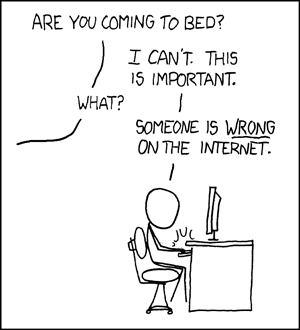James -
I’m coming to this thread relatively late, it seems, but I thought I’d take the somewhat radical step of actually attempting to address your original question.
My own background is as a physician in a very busy private practice. I’m not engaged in anything resembling ongoing scientific research — in point of fact, experimenting on our patients is generally discouraged. 
But FWIW, my own take on this is that “scientific inquiry,” aka methodological naturalism, aka whatever term you think fits best — is all ultimately a way of knowing. it’s one of many ways of knowing available to us…theology, morality & ethics, mathematics & logic, art — these are all ways of knowing. As you’re fond of saying, science as a way of knowing has rules, Other ways of knowing have rules, as well. Math has rules. Music as an art form to a lesser degree has rules; guys like Thelonius Monk & some avant garde composers have broken certain of those rules, perhaps, but there are still some rules. Something has to apply to make it “music” vs. a disorganized cacophony of noise, like traffic.
But when it comes to finding out about the natural world, scientific inquiry is the way of knowing which we utilize. It’s what gets us from position “A,” where there’s some things which I know, to position “B,” where I’ll know more. “Science” is the bridge that gets me from A to B, and like any bridge, it’s constructed according to certain principles & rules. I’d submit that there are 5 basic principles to this bridge. Others may have a list with more rules. Still others may have a list with fewer. But I’ll go with these 5….
- The basic properties of matter & energy are both (a) unchanging across time, and (b) truly “universal” in the sense that they’re the same everywhere. Things like the speed of light, the force of gravity, the properties of subatomic particles & how they ultimately form atoms & later molecules, the properties of water as a solvent, and its freezing & boiling points…all of those things are constants in nature. This is what allows us to perform methodological observations, to repeat our experiment tomorrow; this is what allows others to repeat the experiment in Korea tomorrow.
(2) It is imperative & assumed that one will make accurate & reproducible measurements using a constant system of weights & measurement…ie, the metric system. I can’t articulate this any better than you have, James…countless times on this forum in the past.
There are errors involved in almost all measurements, because (a) people are doing the measuring, and people make mistakes, (b) my kilogram measuring thingy may be slightly different vs. the official kilogram in that glass case that they keep in Paris, or Geneva, or wherever it is, and (c) science is hard sometimes; sometimes it’s hard to measure things. But, it’s also understood that one accounts for the errors in measurement appropriately.
(3) Math works. We can do math to fill in gaps in what we can measure directly. Depending on the types of data involved, different statistical tools are more appropriate than others. But often it’s essentially a more elaborate version of a middle school math problem, where one is given 2 or 3 data points on an x-y graph, and you have to solve where the line would cross the x-axis. If you can measure when 0.0001% of a radioactive isotope undergoes beta decay, and 0.0002%, and 0.0003%,…you can extrapolate that to where 50% would undergo decay, and voila, you have a half-life. Why? Because you’re making careful measurements of a known constant of nature, ie, the physics of the atomic nucleus…and you’re doing the math.
(4) The principle of falsifiability…principally attributed to the philosopher Karl Popper. Popper held that for a hypothesis or theory to be truly scientific, there must exist at least the hypothetical possibility that someone could make an observation that would prove that hypothesis/theory incorrect, or at least in need of modification. IIRC, Popper’s famous example of “pseudoscience” was Freudian psychoanalysis.
(5) Peer review…perhaps the most important principle of all. If you think you’ve come up with an interesting scientific discovery, you write it up as a paper. All scientific journal submissions have the same format…whether in physics, biochemistry, or medical research studies. Importantly, you’re expected to show all your data — there’s no Colonel’s secret recipe; if you don’t show your data, nobody’s going to believe you. You show your math. And you invite others to take a crack at it, too.
And this is what I think so many creationist advocates fail to understand. There’s not a “consensus” that the Big Bang occurred 13.8-ish billion years ago because a bunch of evil godless astronomers met in a smoke filled room & cast lots on what numbers they could conjure up that would tick off a bunch of Bible-toting Christians. Or because they had a flawed “worldview” that didn’t appropriately recognize biblical authority. Rather, thousands of individuals by now have made countless careful measurements of physical processes that have thus far been seen to be constant & unchanging (eg, the physics of microwave radiation), they’ve done the math, and they’ve allowed lots of other folks to take their own best crack at measuring the same phenomena. And, slowly but surely, these accumulated corporate observations have honed in on a value with smaller & smaller error bars.
This is where so-called “creation science” so often ultimately fails…the infamous Rate Project fails spectacularly on all five of the above; but I think perhaps I’ll leave that topic for another time. Cheers, brother.
